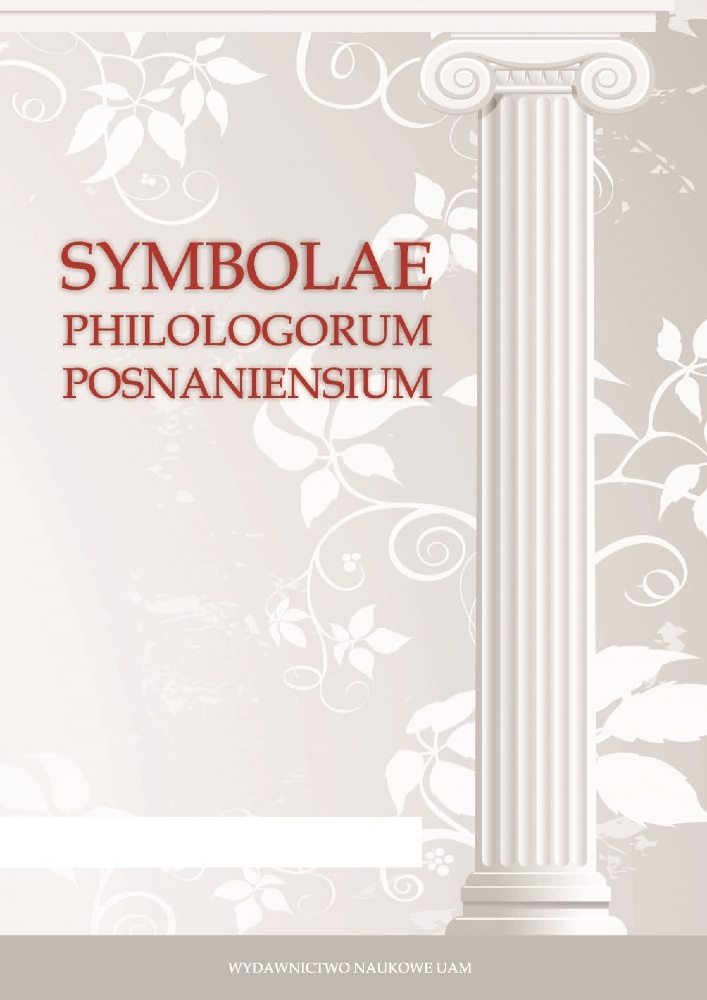Abstrakt
The paper discusses various ways of depicting madness in Homer’s epics based on the example of a scene from the Iliad, in which Andromache is compared to a maenad, as well as the scene concerning the feast of suitors in book XX of the Odyssey. Depicting madness by means of gestures affects the reception of the described scenes by the external and internal epic audience in a very special way. The gestures that are described invoke in the listeners associations related to their own experiences and appeal to particular emotions, whose presence affects the reception of an epic. The gestures and the nonverbal message allude to the Bacchic trance and this raises the question whether Homer and his audience were familiar with the cult of Dionysus.Bibliografia
Homer: The Iliad, vol. 1: Books 1–12, trans. A. T. Murray, Cambridge, Mass. 1924.
Homer, The Odyssey, vol. 2: Books 13–24, trans. A. T. Murray, Cambridge, Mass. 1919.
Cloakis M., The Laughter of the Suitors in “Odyssey” 20, CW 79, 1986.
Dodds E., The Greeks and the Irrational, Berkeley 1951.
Edwards M.W., The Iliad: A Commentary, vol. V: books 17–20, Cambridge 1991.
Guidorizzi G., The Laughter of the Suitors: A Case of Collective Madness in the Odyssey, [in:] Poet, Public, and Performance in Ancient Greece, L. Edmunds, R. Wallace (eds), Baltimore 2000.
de Jong I., Narrators and Focalizers: The Presentation of the Story in the Iliad, Amsterdam 1987.
Lateiner D., Sardonic Smile: Nonverbal Behavior in Homeric Epic, Ann Arbor 1995.
Lincoln B., Death, War, and Sacrifice: Studies in Ideology and Practice, Chicago 1991.
Muich R., Pouring out Tears: Andromache in Homer and Euripides, Urbana 2010.
Privitera G.A., Dioniso in Omero e nella Poesia Greca Arcaica, Rome 1970.
Richardson N., The Iliad: A Commentary, vol. VI: Books 21–24, Cambridge 1993
Scodel R., The Story-teller and His Audience, [in:] R. Fowler (ed.), The Cambridge Companion to Homer, Cambridge 2004.
Seaford R., Dionysus as Destroyer of the Household: Homer, Tragedy, and the Polis, [in:] T. Carpenter, C. Faraone (eds), Masks of Dionysus, Ithaca 1993.
Seaford R., Dionysos. Gods and Heroes of the Ancient World, New York 2006.
Segal Ch., Andromache’s Anagnorisis: Formulaic Artistry in Iliad 22.437–476, HSPh 75, 1971.
Tsagalis Ch., in The Oral Palimpsest: Exploring Intertextuality in the Homeric Epics Cambridge, Mass. 2008.
Licencja
